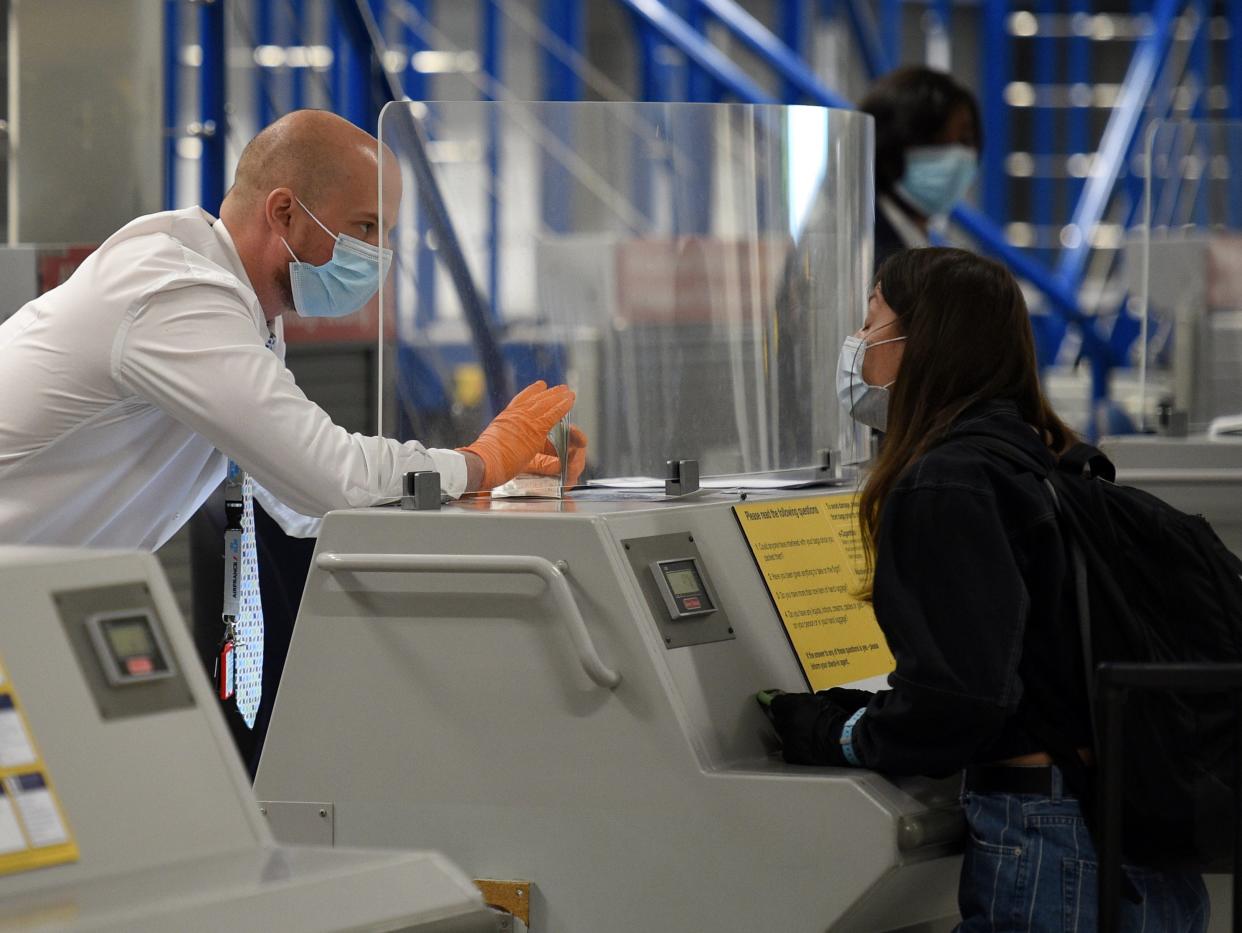Plastic screens could worsen Covid risk in some situations, government told

Plastic screens could increase the risks of catching Covid in some circumstances, the government has been warned.
Experts say screens may block or change airflow patterns or, in some cases, create areas of poor air circulation.
However, screens and barriers are likely to cut the risk of people being exposed to larger aerosols and droplets from other people’s breath when they are face-to-face and within two metres of each other, ministers have been told.
The Environmental Modelling Group, a panel of 16 professors, doctors and health experts who are part of the Scientific Advisory Group for Emergencies (Sage), looked at scientific evidence on barriers in reducing the spread of the coronavirus to advise the government.
The group said in a report: “There is some epidemiological and mechanistic evidence that suggests that screens could increase risks of aerosol transmission due to blocking/changing airflow patterns or creating zones of poor air circulation behind screens. This effect will depend on the local airflow patterns.”
It said it had “medium” confidence in this idea, adding: “Unless they are designed to work with the airflow, screens are unlikely to reduce exposure to virus in smaller aerosols as they can easily pass around a screen with the airflow in a short period of time.”
But the experts said they had “high” confidence that screens and barriers benefited people who were close together.
Earlier this year, a Whitehall document advised ministers against the use of screens, arguing that the partitions could exacerbate transmission by blocking the airflow that helps to disperse aerosols.
The Sage group said screens could also reduce surface contamination in some settings, although evidence was limited.
But they also said screens were unlikely to directly reduce exposure to the virus from droplets or aerosols when people were more than two metres apart or where they were not face-to-face.
NHS guidance advises company bosses that screens or barriers help to separate peopleâ¯fromâ¯each other.
Government advice on “freedom day”, when a raft of restrictions were lifted nearly two weeks ago, also suggested using partitions to minimise contact from other people’s breath.
But some supermarkets have already taken screens down.
The effectiveness of screens will depend on factors such as the layout of the space, the ventilation, the size and design of the screen and the interactions that happen in the environment, according to the new report.
“In some locations it is possible that screens or barriers could act as reminders to people to maintain social distance or help organisations manage the layout in their environments,” it said.
Read More
Perspex screens unlikely to reduce transmission and may even increase risk
Got the ‘Freedom Day’ fear? How to handle peer pressure to get ‘back to normal’

 Yahoo News
Yahoo News 
